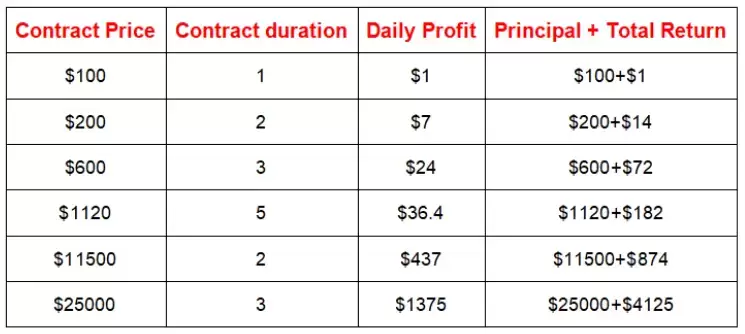 |
|
 |
|
 |
|
 |
|
 |
|
 |
|
 |
|
 |
|
 |
|
 |
|
 |
|
 |
|
 |
|
 |
|
 |
|
不可否認的是,AI已經滲透到當今大部分流行的工業領域。但是,當涉及金融領域時,其影響尤其明顯,AI交易代理 - 利用機器學習,自然語言處理和實時數據分析以優化交易決策的自治實體,在全球範圍內獲得了很多關注。

In today's rapidly evolving technological landscape, Artificial Intelligence (AI) has undoubtedly made its mark on most of the industry sectors that matter. But perhaps no domain has felt the full brunt (or benefit) of AI's capabilities as keenly as the financial realm.
在當今迅速發展的技術景觀中,人工智能(AI)無疑在重要的大多數行業領域都留下了自己的印記。但是,也許沒有任何領域能像財務領域那樣敏銳地感到AI能力的全部(或受益)。
This is especially true when it comes to AI trading agents – autonomous entities that are capable of learning, adapting, and making optimal trading decisions on their own, combining the best of machine learning, natural language processing, and real-time data analysis to generate high-performing trading strategies.
當涉及AI交易代理商時,這尤其如此,這些實體能夠自動進行學習,適應和自行做出最佳的交易決策,結合機器學習,自然語言處理和實時數據分析以產生高性能交易策略。
A quick glance at the numbers reveals that the market for such agents is poised for significant growth, with experts predicting the technology to expand at an impressive rate, rising from a 2024 valuation of $5.1 billion to an astounding $47.1 billion by 2030.
快速瀏覽數字表明,此類代理商的市場有望實現顯著增長,專家預測,該技術將以令人印象深刻的速度擴展,從2024年的估值上升到51億美元,到2030年的471億美元。
Moreover, in markets like India, AI-based algorithmic trading has already reached unparalleled heights, currently handling about 55% of the total trading volume on the nation's largest exchange, the NSE. To put that into perspective, retail investor participation in algorithm-based trades has increased by 25%, while the adoption of AI-powered trading models (in India alone) has surged 120% over the last 5 years.
此外,在印度這樣的市場中,總部位於AI的算法交易已經達到了無與倫比的高度,目前處理美國最大交易所總交易量的約55%。從角度來看,散戶投資者參與基於算法的交易的參與增長了25%,而在過去的5年中,採用AI驅動的交易模式(僅在印度)飆升了120%。
And to no surprise, these agents have been found to deliver prediction accuracies of up to 78%, especially when signaling short-term market corrections.
毫不奇怪,已經發現這些代理商可提供高達78%的預測準確性,尤其是在信號短期市場校正時。
An AI-driven DeFi ecosystem
AI驅動的Defi生態系統
The last couple of years have seen the DeFi sector undergo a massive makeover, with technologies like AI, NLP, and ML (amongst several others) rapidly seeping into this space. There are now many blockchain-based protocols that have integrated AI into their frameworks to enhance market efficiency, all while simultaneously allowing traders to execute sophisticated strategies without their constant involvement or oversight.
在過去的幾年中,Defi行業經歷了大規模的改頭換面,諸如AI,NLP和ML之類的技術(其他幾個)迅速滲入了這一空間。現在,有許多基於區塊鏈的協議已將AI集成到其框架中以提高市場效率,同時允許交易者在不持續參與或監督的情況下執行複雜的策略。
Among the projects leading this roost, Giza has stood out head and shoulders above the rest of the competition, offering clients a holistic agent-driven DeFi automation platform.
在領導這一棲息的項目中,吉薩(Giza)在競爭中的其餘部分都脫穎而出,為客戶提供了一個由代理驅動的Defi Automation平台。
At its core, Giza provides the necessary infrastructure for the next generation of autonomous DeFi agents. Its ‘semantic abstraction layer’ simplifies complex protocol interactions, enabling AI agents to interpret and execute financial operations more effectively while its ‘agent authorization layer,’ built on smart account infrastructure, ensures non-custodial operations and allows users to retain full control over their assets. Finally, its ‘decentralized execution layer’ provides crypto-economic security guarantees, ensuring that agents operate in a transparent and trustless manner.
Giza的核心為下一代自主偏見代理提供了必要的基礎設施。它的“語義抽象層”簡化了複雜的協議交互,使AI代理能夠更有效地解釋和執行財務運營,而其“代理授權層”建立在智能帳戶基礎架構的基礎上,確保非抑制操作,並允許用戶保留對其資產的完全控制。最後,其“分散執行層”提供了加密經濟安全保證,以確保代理以透明且無信任的方式運作。
That said, Giza’s true innovation lies in its autonomous trading agent, ARMA, which operates far beyond the capabilities of basic automated tools. To elaborate, ARMA has been designed to continuously monitor multiple DeFi protocols, execute complex yield strategies, and dynamically adapt to changing market conditions (while maintaining a high degree of user security and sovereignty).
也就是說,吉薩的真正創新在於其自主貿易代理Arma的運作遠遠超出了基本自動化工具的能力。為了詳細說明,ARMA旨在不斷監視多個FEFI協議,執行複雜的收益策略,並動態適應不斷變化的市場條件(同時保持高度的用戶安全性和主權)。
Also, unlike conventional bots that follow rigid pre-programmed instructions, ARMA functions with an adaptive intelligence layer, enabling it to respond to real-time financial changes with precision. As things stand, there are already thousands of ARMA-driven agents managing hundreds of thousands in assets across leading lending protocols.
同樣,與遵循嚴格的預編程說明的常規機器人不同,ARMA具有自適應智能層的功能,使其能夠精確地響應實時財務變化。從事物看來,已經有成千上萬的ARMA驅動的代理商在領先的貸款方案中管理數十萬個資產。
AI trading analyzed within a global context
在全球環境中分析的AI交易
As AI-powered trading agents have gained prominence, regulatory bodies worldwide are taking steps to establish governance frameworks that ensure fair and transparent financial markets, as they introduce certain new risks (including algorithmic biases, market manipulation, and potential systemic failures) into the mix.
隨著AI驅動的貿易代理商的突出性,全世界的監管機構正在採取措施建立治理框架,以確保公平和透明的金融市場,因為它們會引入某些新風險(包括算法偏見,市場操縱和潛在的系統性失敗)。
For instance, in Germany, financial regulators have established a clear and structured framework for AI-driven trading platforms, thus providing much-needed stability and legal clarity for financial service providers deploying AI in their routine trading operations. Plans for the introduction of an AI code of conduct with guidelines for due diligence, data governance, and explainability of algorithmic trading systems are also in place.
例如,在德國,金融監管機構為AI驅動的交易平台建立了一個清晰且結構化的框架,從而為金融服務提供商提供了急需的穩定性和法律上的清晰度,以便在其常規交易運營中部署AI。引入AI行為守則的計劃以及算法交易系統的盡職調查,數據治理和解釋性的指南也存在。
Similarly, India's Securities and Exchange Board (SEBI) has implemented specific regulations for algorithmic trading, ensuring that AI-driven strategies operate within well-defined parameters to prevent market abuses. SEBI's regulations also mandate the creation of internal governance structures and procedures for managing algorithmic trading activities.
同樣,印度的證券交易委員會(SEBI)實施了針對算法交易的特定法規,以確保AI驅動的戰略在定義明確的參數中運行以防止市場濫用。 SEBI的法規還要求創建內部治理結構和程序來管理算法交易活動。
Beyond national regulations, the broader global financial landscape is adapting to AI-driven finance. The Bank of England, for instance, is considering the inclusion of AI-related stress tests in its annual assessments to evaluate potential systemic risks posed by algorithmic trading.
除了國家法規之外,更廣泛的全球金融格局正在適應AI驅動的金融。例如,英格蘭銀行正在考慮將與AI相關的壓力測試納入其年度評估,以評估算法交易帶來的潛在系統性風險。
Looking ahead, it will be interesting to see how AI's growing influence on financial markets impacts the broader economic landscape.
展望未來,有趣的是,看到AI對金融市場的影響如何影響更廣泛的經濟格局。
免責聲明:info@kdj.com
所提供的資訊並非交易建議。 kDJ.com對任何基於本文提供的資訊進行的投資不承擔任何責任。加密貨幣波動性較大,建議您充分研究後謹慎投資!
如果您認為本網站使用的內容侵犯了您的版權,請立即聯絡我們(info@kdj.com),我們將及時刪除。
-

- 黃金支持的Stablecoins解釋說:它們是什麼,它們如何工作?
- 2025-04-21 23:45:12
- 黃金支持的穩定幣是將數字貨幣固定在物理金儲備中,旨在保持穩定的價值。
-

-

-

-

- BNB鏈超過Tron和以太坊,成為交易USDT的最受歡迎的網絡
- 2025-04-21 23:35:12
- BNB連鎖店已成為交易USDT的最受歡迎的網絡之一,超過了Tron和Ethereum等其他區塊鍊網絡。
-

-

-

- Shiba Inu(Shib)可能處於恢復的邊緣
- 2025-04-21 23:30:13
- 最近的數據表明,Shib的燃燒率飆升,有2648萬個令牌從循環中永久刪除。
-


























































